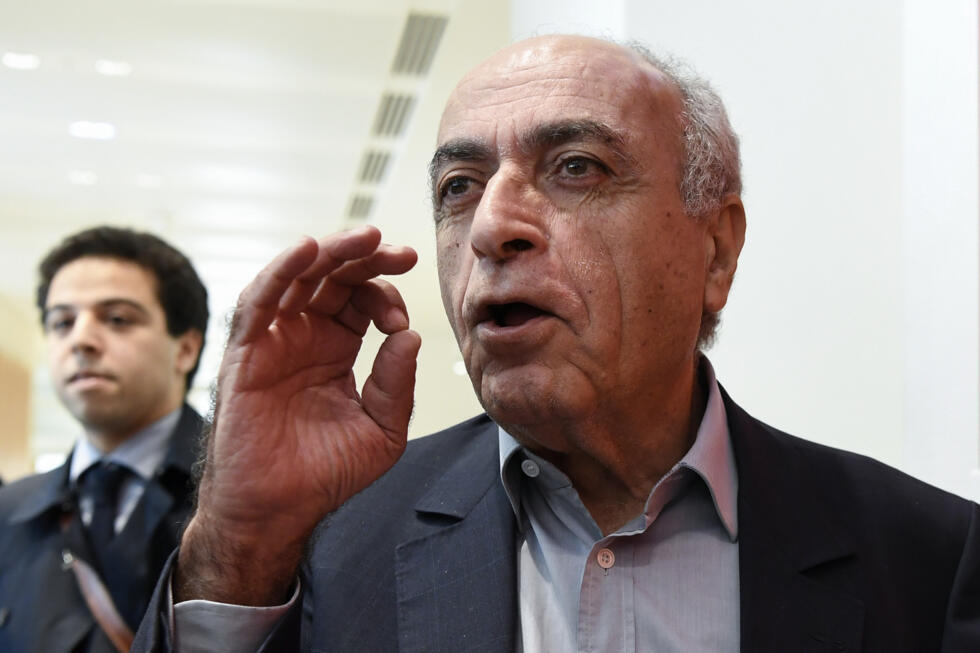
A French court on Thursday sentenced former president Nicolas Sarkozy to five years of prison for accepting illegal campaign funds from late Libyan strongman Muammar Gaddafi. Sarkozy was convicted of criminal conspiracy but was acquitted of other charges.
A Paris court on Thursday sentenced former president Nicolas Sarkozy to five years of prison for accepting illegal campaign funds from late Libyan strongman Muammar Gaddafi.
The sentence means that he will be imprisoned whether he launches an appeal or not. The judge also ordered that he pay a €100,000 fine.
Prosecutors alleged that Sarkozy, who has always denied the charges, made a deal with Gaddafi in 2005, when he was France's interior minister, to obtain campaign financing in exchange for supporting the then-isolated Libyan government on the international stage.
The court found Sarkozy guilty of criminal association in a scheme from 2005 to 2007 to finance his campaign with funds from Libya in exchange for diplomatic favours. But it cleared him of three other charges – including passive corruption, illegal campaign financing and concealment of the embezzlement of public funds.
L'ancien président français Nicolas Sarkozy arrive au tribunal de Paris, le 25 septembre 2025. © Stephanie Lecocq, Reuters
Sarkozy slammed the court's ruling on criminal conspiracy, telling reporters he considered it "extremely serious for the rule of law" after leaving the courtroom.
Flanked by his wife, model and singer Carla Bruni-Sarkozy, Sarkozy told reporters that he would appeal the decision and "sleep in prison with my head held high", after the court ordered him into custody at a later date.
The ruling is the latest in a string of legal hurdles for the right-wing ex-leader, 70, who denied the charges. Sarkozy, who was president of France from 2007 to 2012, has already been convicted in two separate cases and stripped of France's highest honour.
The judgement has been overshadowed by the death on Tuesday in Beirut of Franco-Lebanese businessman Ziad Takieddine, a key accuser of Sarkozy in the case.
Takieddine had claimed several times that he helped deliver up to five million euros ($6 million) in cash from Gaddafi to Sarkozy and the former president's chief of staff in 2006 and 2007.
He then spectacularly retracted his claims before contradicting his own retraction, prompting the opening of another case against Sarkozy and his wife on suspicion of pressuring a witness.
The death after cardiac arrest of Takieddine, 75, who had been living in Lebanon to escape a French arrest warrant, has added new uncertainty to the proceedings, raising the prospect of the judgement possibly being postponed.
'Fight to the end'
Prosecutors argued that Sarkozy and his aides devised a pact with Gaddafi in 2005 to illegally fund Sarkozy's victorious presidential election bid two years later.
Investigators believe that in return Gaddafi was promised help to restore his international image after Tripoli was blamed by the West for bombing a plane in 1988 over Lockerbie, Scotland and another over Niger in 1989, killing hundreds of passengers.
Gaddafi was ultimately overthrown and killed by opponents in 2011 during the Arab Spring as NATO military intervention – in which France under Sarkozy played a key role – enforced a no-fly zone.
Eleven others were charged alongside Sarkozy, including his former right-hand man, Claude Gueant, his then-head of campaign financing, Eric Woerth, and former minister Brice Hortefeux, all of whom denied the charges.
Guént was sentenced Thursday to six years in prison, and Hortefeux to two.

The prosecution's case was based on statements from seven former Libyan dignitaries, trips to Libya by Gueant and Hortefeux, financial transfers, and the notebooks of the former Libyan oil minister Shukri Ghanem, who was found drowned in the Danube river in Vienna in 2012.
"It will take as long as it takes, but I will fight to the end to prove my innocence," Sarkozy told the French newspaper Le Figaro.
Sarkozy has faced a litany of legal problems since his mandate and has been charged separately with corruption, bribery, influence-peddling and campaign finance infringements.
He was first convicted for graft and sentenced to a one-year jail term, which he served with an electronic tag for three months before being granted conditional release.
Separately, he received a one-year jail term – six months with another six months suspended – in the so-called "Bygmalion affair" for illegal campaign financing. Sarkozy has gone to France's top appeals court to appeal that verdict.
He has faced repercussions beyond the courtroom, including losing his Legion of Honour – France's highest distinction – following the graft conviction.
Legal woes aside, the man who styled himself as the "hyper-president" while in office still enjoys considerable influence and popularity on the right of French politics, and is known to regularly meet with President Emmanuel Macron.
(FRANCE 24 with AFP, AP, Reuters)